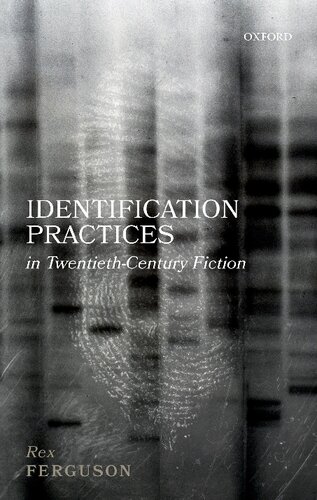

Most ebook files are in PDF format, so you can easily read them using various software such as Foxit Reader or directly on the Google Chrome browser.
Some ebook files are released by publishers in other formats such as .awz, .mobi, .epub, .fb2, etc. You may need to install specific software to read these formats on mobile/PC, such as Calibre.
Please read the tutorial at this link: https://ebookbell.com/faq
We offer FREE conversion to the popular formats you request; however, this may take some time. Therefore, right after payment, please email us, and we will try to provide the service as quickly as possible.
For some exceptional file formats or broken links (if any), please refrain from opening any disputes. Instead, email us first, and we will try to assist within a maximum of 6 hours.
EbookBell Team

5.0
18 reviewsIdentification Practices and Twentieth-Century Fiction tests the hypothesis that these techniques and methods, as practiced in the UK and US in the long 20th century, are inherently related to the literary representation of self-identity from the same period. Until now, the question of 'who one is' in the sense of formal identification has remained detached from the question of 'who one is' in terms of the representation of unique individuality.
Placing these two questions in dialogue allows for a re-evaluation of the various ways in which uniqueness has been constructed during the period, and for a re-assessment of the historical and literary historical context of such construction. In chapters ranging across the development of fingerprinting, the institution of identity cards during the Second World War, DNA profiling and contemporary digital surveillance, and an analysis of writing by authors including Joseph Conrad, Graham Greene, Elizabeth Bowen, J. G. Ballard, Don DeLillo, and Jennifer Egan, Identification Practices and Twentieth-Century Fiction makes an original contribution to the disciplines of English Literature, History, and Cultural Studies.